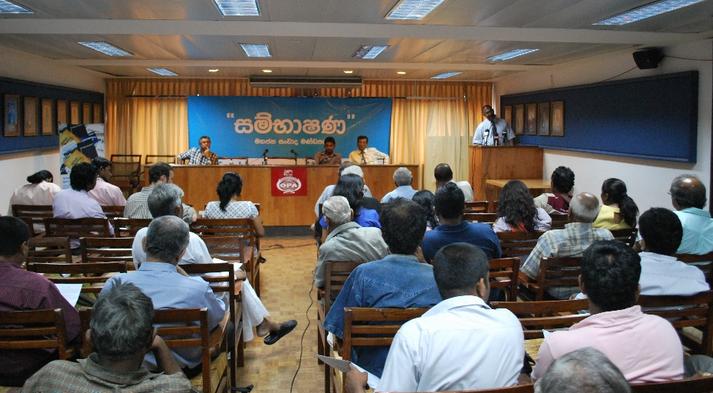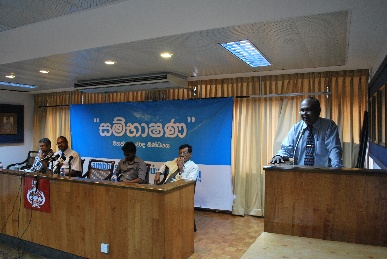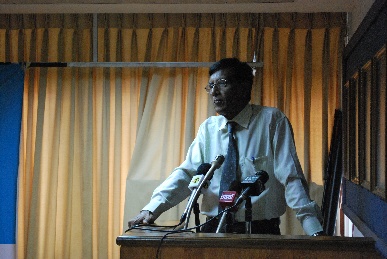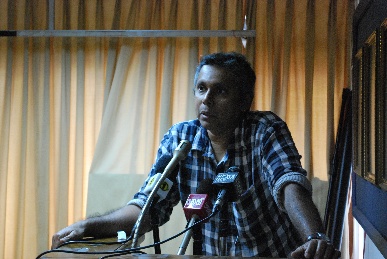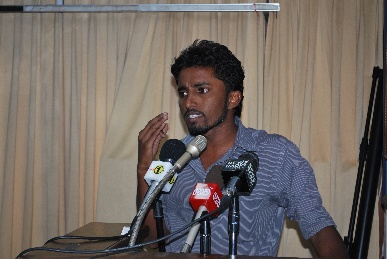“Universities are no longer independent institutions free of political interference as they used to be in the past. The absence of academic freedom can be deemed as a violation of fundamental rights”, said Prof. Jagath Wickramasinghe, former Vice Chancellor of the Sri Jayawardanapura University addressing a panel discussion on ‘University Crisis’ recently.
“What is the purpose of a university? Universities are established with the hope of moulding individuals to be creative human beings. However ,the universities in Sri Lanka have not activated themselves to mould individuals into creative human beings,” Prof.Wickramasinghe pointed out.
He was addressing a well attended Sambhashana Outreach Programme organised by TISL and held at the OPA auditorium. Taking part in the discussion were Senior Lecturer – Colombo University, Dr. Nirmal Ranjith Dewasiri and Inter University Students Federation convener – Sanjeewa Bandara. The moderator was Dean of the Department of Sociology of Open University Dr. Mahim Mendis.
TISL Chairman M D A Harold welcomed the participants.
Opening the discussion, Prof. Wickramasinghe said that the scarcity of resources in developing countries and the privilege of education are not adequately shared among students. Education is a privilege that is manipulated and held on to by the ruling party. The crisis is worsened with poor parents having to send their children to extra tuition classes where they are taught to merely repeat the notes given by tutors and as a result, don’t possess the practical knowledge required to excel in their academically.
“Universities are not independent institutions free of political interference like they used to be in the past. Even the then Education Minster Richard Pathirana was not allowed to change the University policy through an amendment that governed universities. The Supreme Court referred the amendment to a referendum,” he said.
Dr. Nirmal Ranjith Dewasiri questioned the purpose of higher education in Sri Lanka. “The main issue is that people have forgotten the purpose of having higher educational opportunities. There is an apparent clash between the ideology of the policymakers and the lecturers. Successive governments have allowed the corporate sector to regulate the higher education system. The corporate sector expects the universities to create students that are essential for the existence of the corporate sector,” he said.
The convener of the IUSF, Sanjeewa Bandara said that the crisis in the education system is caused by the frequent change of policies initiated by the policymakers to suit their political interests. The government does not expand higher educational opportunities in relation to the demand that prevails. Instead they cut down the benefits given to students within a free education system.
“The University Grants Commission doesn’t renew the curriculum of degree programmes and do not address the issues that arise about the relevance of the university curricula to present times. When the students and lecturers raise the issues in the sector, the government merely represses them,” he said.
“With the introduction of private universities the real purpose of gaining a degree is lost. Today the purpose of a degree is merely as a tool to gain employment. The private universities have begun to sell degrees and only students within a particular economic level are able to obtain a proper education,” he added.

